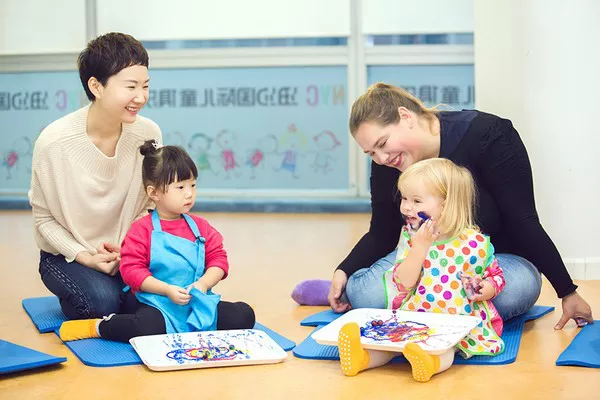Friendship is a fundamental human experience that greatly influences our emotional and psychological well-being. Among the different types of friendships, the bond between best friends stands out as particularly significant. Best friends provide a unique form of support that can profoundly impact our lives. In this article, we will explore the various ways best friends support each other, the psychological benefits of such support, and how to cultivate and maintain these valuable relationships.
The Importance of Friendship
Definition of Friendship
Friendship is a close and mutually beneficial relationship between individuals characterized by trust, affection, and support. It is marked by shared experiences, mutual respect, and a deep understanding of each other’s needs and emotions.
Types of Friendships
Acquaintances: Casual relationships often limited to social settings.
Close Friends: People with whom you share deeper connections and more personal interactions.
Best Friends: Those you have the deepest, most trusting, and supportive relationships with.
The Role of Friendship in Well-being
Friendship plays a crucial role in emotional and psychological well-being. It provides a sense of belonging, reduces feelings of loneliness, and enhances happiness. Best friends, in particular, offer a level of support and understanding that is invaluable during both good and bad times.
How Do Best Friends Support Each Other?
1. Emotional Support
Emotional support is one of the most critical aspects of any friendship, especially between best friends. This support involves understanding, empathy, and a willingness to be there for each other in times of need.
Active Listening: Best friends listen attentively to each other’s concerns, fears, and joys without interrupting or judging.
Empathy: They can put themselves in each other’s shoes and offer genuine understanding and compassion.
Validation: They validate each other’s feelings and experiences, helping to alleviate feelings of isolation or inadequacy.
2. Encouragement and Motivation
Best friends encourage and motivate each other to pursue their goals and dreams. They provide the confidence boost needed to overcome challenges and strive for personal growth.
Positive Reinforcement: Offering words of encouragement and celebrating each other’s successes.
Accountability: Helping each other stay on track with goals and commitments.
Inspiration: Motivating each other to try new things and step out of comfort zones.
3. Trust and Confidentiality
Trust is the cornerstone of any strong friendship. Best friends trust each other implicitly and can confide in one another without fear of betrayal.
Confidential Conversations: Best friends share their deepest secrets and fears, knowing they will remain confidential.
Reliability: They are dependable and consistent, always there when needed.
4. Honest Feedback
Honest feedback, even when it’s tough to hear, is crucial for personal growth. Best friends provide constructive criticism and guidance out of genuine care and concern.
Constructive Criticism: Offering feedback in a way that is helpful and not hurtful.
Supportive Guidance: Helping each other make informed decisions and avoid potential pitfalls.
5. Shared Experiences and Interests
Shared experiences and common interests strengthen the bond between best friends. These shared moments create lasting memories and deepen the connection.
Hobbies and Activities: Engaging in activities both friends enjoy, from sports to hobbies to travel.
Creating Memories: Building a repository of shared experiences that can be cherished and reminisced about.
6. Crisis Support
During times of crisis, best friends provide indispensable support. Whether it’s a personal loss, a health issue, or a major life change, best friends are there to offer practical help and emotional solace.
Practical Help: Assisting with day-to-day tasks and responsibilities during difficult times.
Emotional Support: Providing a shoulder to cry on and a comforting presence.
7. Celebrating Successes
Best friends are each other’s biggest cheerleaders. They celebrate each other’s successes, no matter how big or small, with genuine joy and pride.
Acknowledging Achievements: Recognizing and celebrating milestones and accomplishments.
Sharing Joy: Feeling and expressing happiness for each other’s successes.
8. Providing a Sense of Belonging
Best friends offer a sense of belonging and acceptance. They create a safe space where each person can be their true self without fear of judgment.
Unconditional Acceptance: Accepting each other for who they are, flaws and all.
Non-Judgmental Environment: Providing a space where both friends feel safe to express themselves openly.
9. Encouraging Healthy Behaviors
Best friends influence each other’s behaviors and lifestyle choices. They encourage healthy habits and discourage harmful behaviors.
Promoting Wellness: Encouraging each other to lead healthy lifestyles, including regular exercise and a balanced diet.
Discouraging Negative Habits: Helping each other avoid unhealthy behaviors such as smoking or excessive drinking.
10. Long-term Commitment
Best friends demonstrate a long-term commitment to each other’s well-being and happiness. They remain friends through life’s ups and downs, showing resilience and loyalty.
Longevity of Friendship: Maintaining the friendship over the years despite changes and challenges.
Adaptability: Adjusting to each other’s evolving lives and circumstances.
The Psychological Benefits of Best Friendships
Reduced Stress
Having a best friend significantly reduces stress levels. The emotional support and understanding provided by a best friend help buffer against life’s pressures and anxieties.
Stress Relief: Sharing worries and concerns with a best friend can provide immediate relief from stress.
Coping Mechanism: Best friends offer coping strategies and perspective during stressful times.
Enhanced Self-Esteem
Best friends bolster each other’s self-esteem by providing positive reinforcement and validation. This support helps build a stronger sense of self-worth.
Positive Affirmation: Regularly affirming each other’s strengths and achievements.
Reducing Self-Doubt: Helping each other overcome insecurities and self-doubt.
Improved Mental Health
Strong friendships contribute to better mental health. They provide a support system that can mitigate the effects of mental health issues such as depression and anxiety.
Emotional Stability: Offering consistent emotional support that promotes mental stability.
Encouraging Professional Help: Supporting each other in seeking professional help when needed.
Increased Happiness
The companionship and joy shared with a best friend contribute to overall happiness. Best friends bring laughter, joy, and a sense of fulfillment to each other’s lives.
Sharing Joy: Experiencing happiness together through shared activities and successes.
Creating Joyful Moments: Finding joy in each other’s company and creating positive memories.
See Also: How to Get Closer to Your Partner?
Cultivating and Maintaining Best Friendships
Effective Communication
Open and honest communication is vital for maintaining a best friendship. It involves expressing feelings, discussing problems, and sharing thoughts without fear of judgment.
Regular Check-ins: Keeping in touch regularly to maintain the connection.
Active Listening: Paying attention and showing genuine interest in each other’s lives.
Mutual Respect
Respecting each other’s boundaries, opinions, and individuality is crucial for a healthy friendship. It involves acknowledging and valuing each other’s perspectives and differences.
Respecting Boundaries: Understanding and honoring each other’s personal space and limits.
Valuing Differences: Appreciating each other’s unique qualities and viewpoints.
Quality Time
Spending quality time together strengthens the bond between best friends. It involves engaging in meaningful activities and making the most of the time spent together.
Shared Activities: Participating in activities both friends enjoy.
Making Time: Prioritizing the friendship and setting aside time to connect.
Adaptability
Being adaptable and flexible is essential for maintaining long-term friendships. It involves adjusting to life’s changes and being supportive during transitions.
Adjusting to Change: Supporting each other through life changes such as moving, new jobs, or family changes.
Staying Connected: Maintaining the connection despite physical distance or busy schedules.
Conflict Resolution
Healthy friendships involve resolving conflicts constructively. It requires open communication, understanding, and a willingness to find common ground.
Addressing Issues: Discussing problems openly and honestly.
Finding Solutions: Working together to resolve conflicts and strengthen the friendship.
FAQs
1. What are the qualities of a best friend?
A best friend possesses qualities such as trustworthiness, empathy, loyalty, honesty, and the ability to provide emotional support. They are dependable, understanding, and share a deep connection with you.
2. How can I support my best friend during a difficult time?
Support your best friend by being present, listening without judgment, offering practical help, and providing emotional comfort. Encourage them to express their feelings and reassure them of your unwavering support.
3. What should I do if I have a conflict with my best friend?
Address the conflict openly and calmly. Communicate your feelings honestly, listen to their perspective, and work together to find a resolution. Avoid blame and focus on understanding each other’s viewpoints.
4. How do best friends influence each other’s behavior?
Best friends influence each other’s behavior by providing positive reinforcement, modeling healthy habits, and offering constructive feedback. They encourage each other to make positive choices and discourage negative behaviors.
5. Can best friends remain close despite physical distance?
Yes, best friends can maintain a strong bond despite physical distance. Regular communication through calls, video chats, and visits can help keep the connection alive. Prioritizing the friendship and making efforts to stay connected are key.
Conclusion
Best friends play a vital role in our lives, providing support that goes beyond ordinary friendships. They offer emotional comfort, encouragement, honest feedback, and a sense of belonging. The psychological benefits of having a best friend are immense, contributing to reduced stress, enhanced self-esteem, improved mental health, and increased happiness. Cultivating and maintaining a best friendship requires effective communication, mutual respect, quality time, adaptability, and conflict resolution. By understanding and nurturing these elements, we can build and sustain meaningful and supportive best friendships that enrich our lives.
Related topics:


















